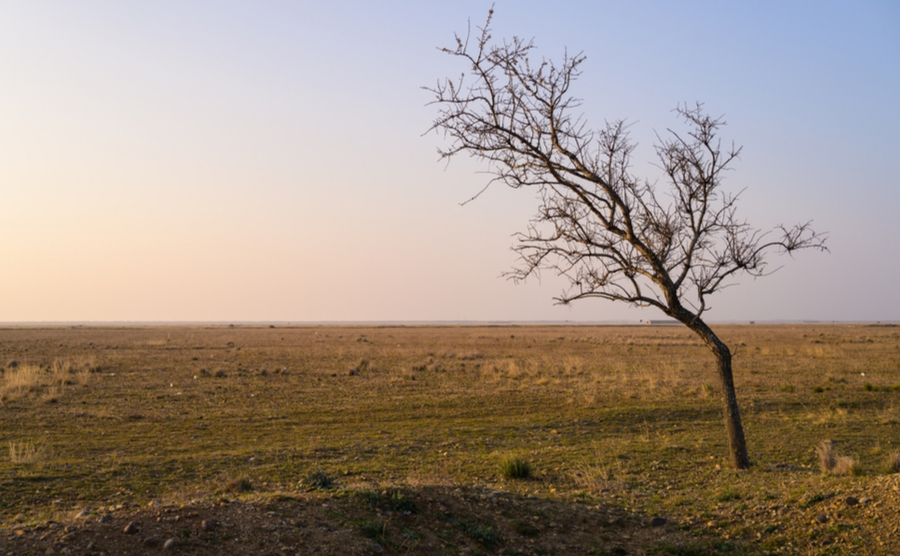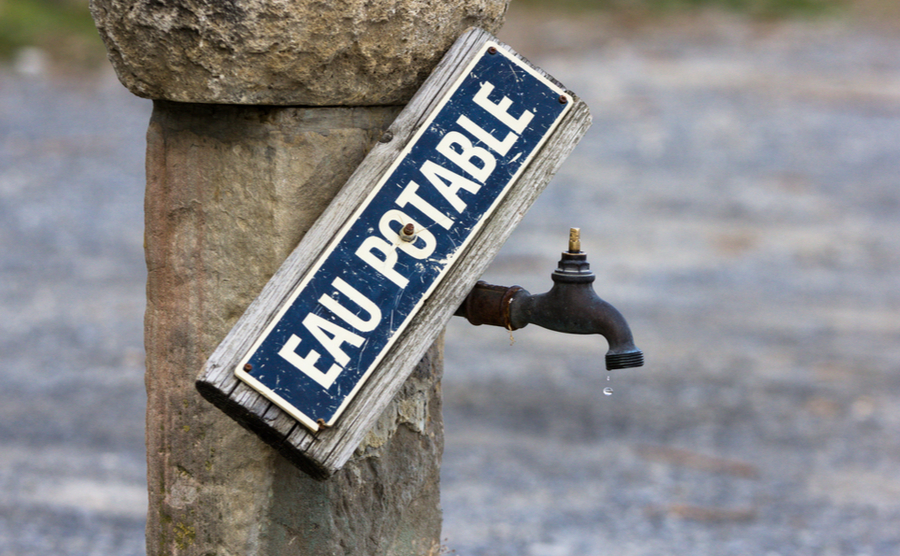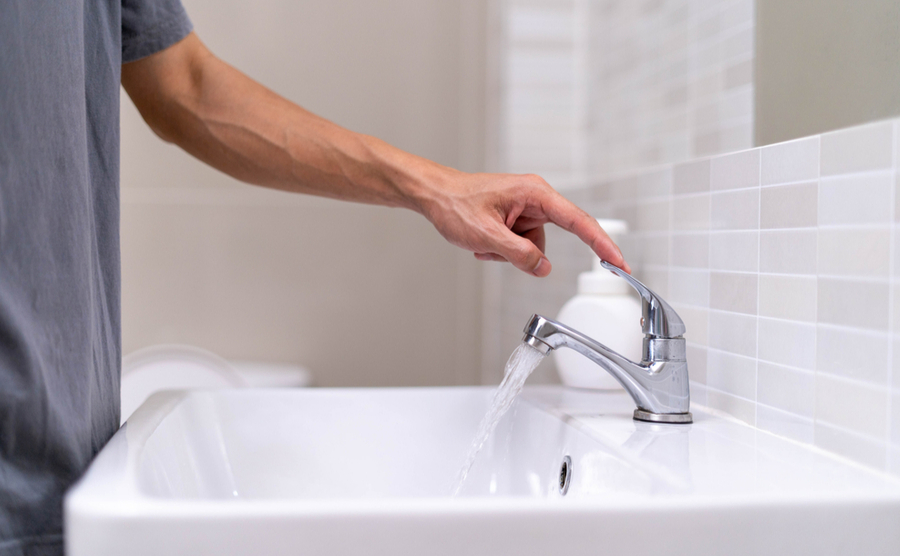After the summer of 2022, dominated by unprecedented temperatures and a spate of forest fires, there are stark warnings of water shortages worsening in France. Following a record dry period in winter, several French departments are already on drought alert with more restrictions certain to come.

France is facing drought restrictions after its driest winter for more than 60 years.
What has caused the shortages?
News throughout 2022, in addition to the cost of living crisis, was almost entirely dominated by forest fires and water shortages in France. Nearly all departments faced restrictions. With even drinking water taps running dry in nearly 100 villages in the far South. Despite heavy rainfall during the month of March, there have been serious warnings already issued by the government. Warning that following the longest winter drought (up to 32 days in some areas) and the driest winter in France since 1959, this is not going to be nearly enough to undo the damage.
In March, Ecology Minister Christophe Béchu unveiled a national water plan in order to counter the crisis. He announced that there will be “a clear before and after summer 2022”. Furthermore, with more restrictions imminent, he stated categorically that “France is in a state of alert”. He urged prefectures to act more quickly in increasing necessary restrictions this year. After low water levels last summer even impacted hydroelectric production and forced reduced power output at France’s nuclear plants.
French President, Macron says this marks the end of abundance of water, and is looking to “progressive” water pricing strategies to help. To punish waste and reward responsible use. He stated that homeowners must play their part at helping to reduce general consumption by up to 10%. By taking personal accountability and being mindful of their consumption. Urging them to find ways of both saving and reusing water. Something he views as imperative to combatting water shortages in France.
Find homes in France via our property portal.

A tap in rural France labelled ‘drinking water’
Looking ahead
Throughout summer 2022, nearly all departments in France saw restrictions, to aid reduction in consumption. From banning washing of cars, filling up of pools and watering of gardens with hose pipes. Restrictions already look likely to go even further this year. In fact, it has already been announced that no building permits are to be issued for the next 4 years in 9 communes of Southern France.
Statistics for 2023 are, without doubt, alarming. 80% of France’s reserves have reportedly lower levels than normal at this time of year. Additionally, nearly 45% of groundwater reserves are at either low or very low levels. In order to avoid a real crisis of water shortages in France, it is clearly going to take participation of mass collective effort.
The outlook for the agricultural sector looks bleak. Already facing issues of supply, due to climate change (in France rising quicker than the global average), this sector uses 80% of the total water consumption during the height of summer in France.
The government has though, pledged agricultural hydraulic projects (including local reservoirs) to aid their plight. Understandably there is still widespread concern within this community, having been asked to cut their consumption by half. Of course, it’s not just the agricultural sector that should be concerned. But consumers, who will certainly in turn, face rising prices and further supply shortages.

A water meter is used to measure consumption
Domestic water supplies
In France, domestic water is supplied by private companies. Which one, however, depends on where you live. Most properties are billed on individual consumption measured by water meters. For consumers, water prices are of course, set to rise in line with inflation. Current predictions of that rise is between 6 and 12%.
Because water meters are often only read once a year to establish final bills, it is advised to pay more attention perhaps than you may have done previously to your water consumption. If meter wheels move when no water is being consumed in the property, or in the case of unusually high monthly consumption, it is highly possible you have a leak.
If that leak is between where the water enters your property boundary and your house, the responsibility lies with you. Even a leaky tap or toilet can cause quite a surprise if left to continue throughout the course of a year unattended. Despite protection of “The Warsmann Law” protecting homeowners from excessive charges, many face unwelcome surprise with the arrival of their first water bills. Perhaps unsurprising, due to the number of people buying properties previously unoccupied for some time. So, to both protect your budget and to help combat water shortages in France, make it a point to regularly check meters.

Turning off the tap wile brushing your teeth is a great way to save water
Saving water in your home
Some ways to save water and aid the effort are obvious. Don’t leave taps running when not required. When gardening, use any wastewater where possible, or rainwater collected in water butts. Run dishwashers and washing machines only when required, and full, and do this in preference to washing by hand. Be truly mindful of genuine priorities when it comes to water consumption and conservation.
Homeowners are being asked to ensure gardens and wastelands are cleared regularly. In order to avoid risk of fire. Forest fires raging throughout France during last summer exacerbated an already precarious situation. More people than before are even installing dry or composting toilets, as well as water saving shower heads and flow restrictors in their homes. Such is the understanding of the severity of this issue.
Without doubt, the challenge of water shortages in France will affect everyone living in the country throughout the coming summer. More importantly, it will clearly take the active participation and collective effort of each and every one of France’s residents to overcome.










